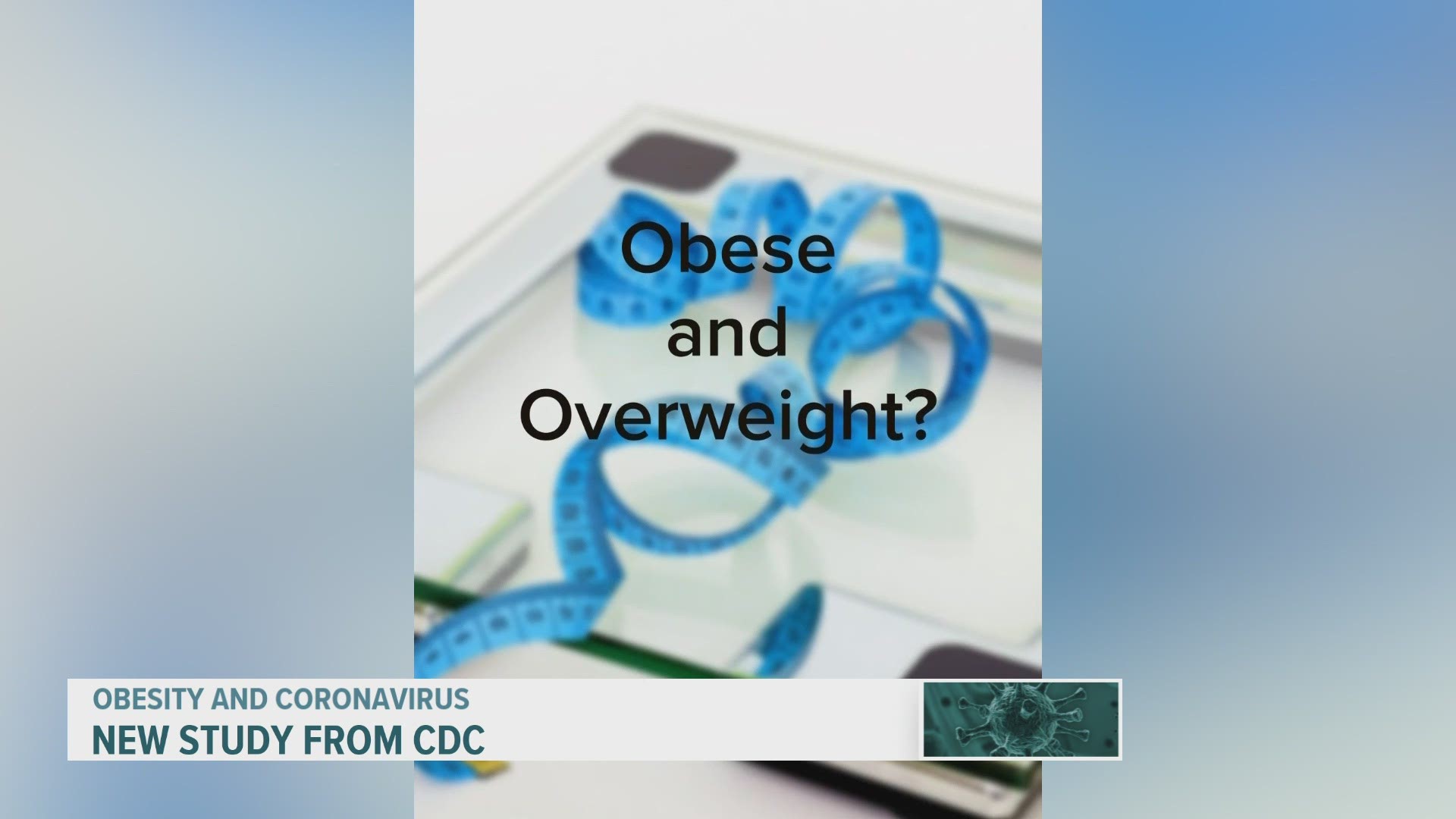DES MOINES, Iowa — This week the CDC released a study that revealed the majority of people who were hospitalized and needed a ventilator or died from COVID-19, were either overweight or obese.
The study examined 148,494 people with COVID-19 at 238 emergency departments or inpatient visits, from March 2020 to December 2020.
Of those adults, 71,491 were hospitalized with 27.8% of them being overweight and 50.2% being obese.
Meaning 78% of the hospitalized population was obese or overweight.
"Because of the function of the body and the disfunction of the body that's created by being overweight or obese your body doesn't function the way that it was intended to," Dr. Vince Hassel of Hassel Family Chiropractic said. "It's hard for the body to stay well."
Dr. Hassel said the body was intended to protect itself against outside invaders like viruses or infections.
According to Dr. Barbara Hodne, when a person weighs more it can sometimes be harder for that body to fight to keep infections out.
"They're likely to have other medical problems," Dr. Hodne said. "Type two diabetes, certain types of cancer, heart disease [and] high blood pressure."
Both doctors note having other medical conditions makes a body more susceptible to getting sicker if an individual gets a disease like COVID-19.
So what qualifies as someone being overweight or obese?
It's calculated using Body Mass Index, or BMI.
"So you're height and weight calculates into a BMI, and a BMI over 26 is being overweight and a BMI over 30 is being obese," Dr. Dana Danley of Brodalawns Medical Center said.
If an individual falls into the obese category it is now a qualifier in Iowas expanded COVID-19 vaccine schedule.
Dr. Hodne also noted to lower a BMI and become healthier, it starts with getting active and watching your food intake.

